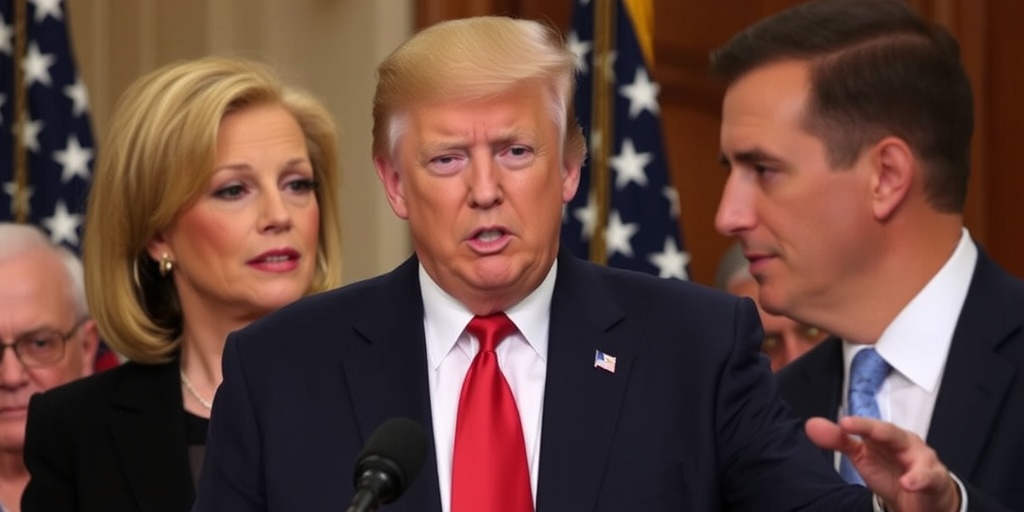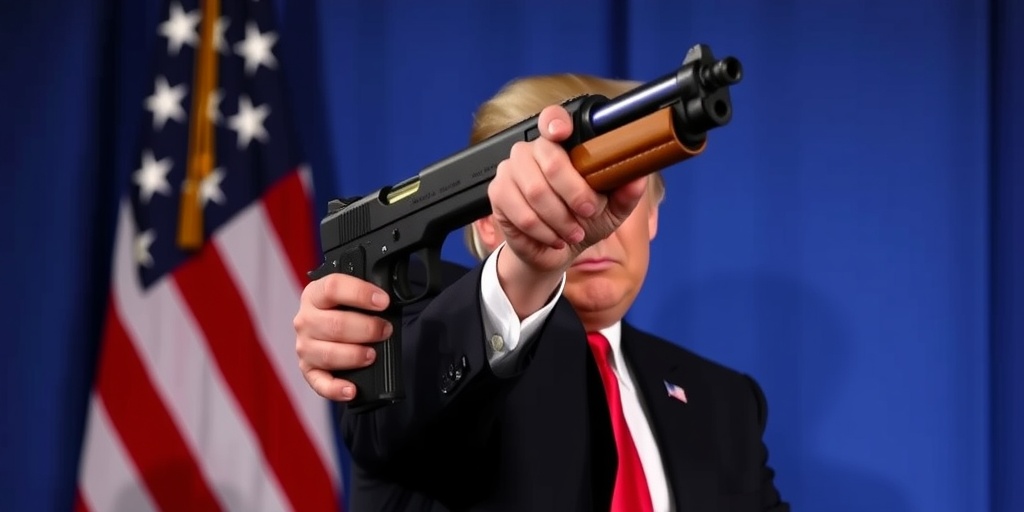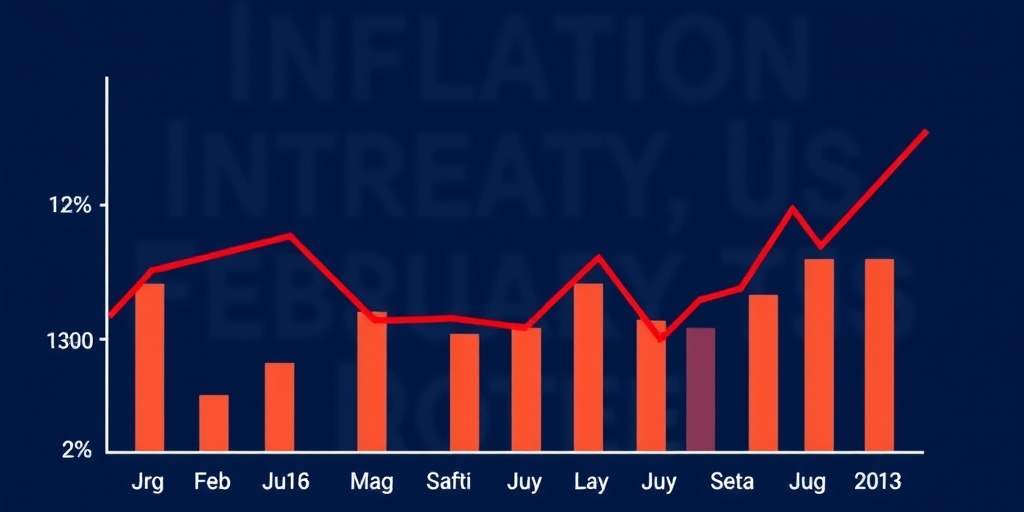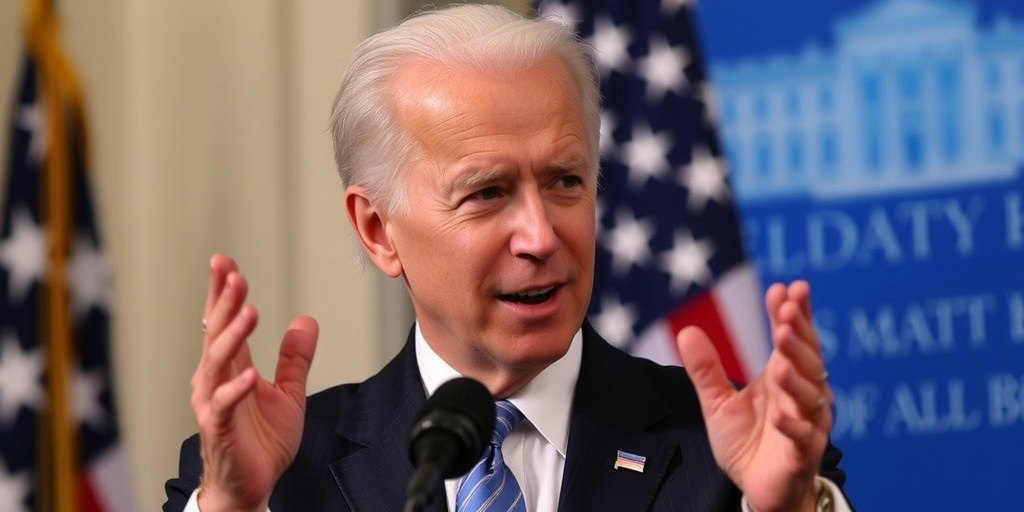Now Reading: Trump’s Influence Tested as Confirmation Hearings Begin for Senate GOP
-
01
Trump’s Influence Tested as Confirmation Hearings Begin for Senate GOP
Trump’s Influence Tested as Confirmation Hearings Begin for Senate GOP

Confirmation Hearings for Trump Cabinet Nominees Heat Up Amid Tensions
As the inauguration of President-elect Donald J. Trump approaches, the political landscape is set for a heated showdown over his cabinet selections. This week, Senate confirmation hearings for several prospective nominees will take center stage, with Democrats attempting to rally support among their Republican counterparts to challenge at least some of Trump’s choices.
The most prominent hearing is poised to take place on Tuesday, when the Senate Armed Services Committee will assess the anticipated nomination of Pete Hegseth, a former Fox News personality and combat veteran, for the position of Secretary of Defense. In addition to Hegseth, Senate committees will conduct public reviews of nominees for various key positions, including Attorney General, Secretary of State, Secretary of the Treasury, Secretary of Homeland Security, Secretary of Energy, Secretary of the Interior, Secretary of Transportation, Secretary of Veterans Affairs, and the Director of the Central Intelligence Agency.
Despite facing criticism regarding the qualifications and backgrounds of some of his nominees, Trump has urged Senate Republicans to maintain unity and expedite the confirmation of his selected team. Early responses from the GOP will be pivotal in setting the tone for the forthcoming administration. While Republican leaders express their commitment to fast-tracking his nominations, the likelihood of confirming more than a handful by Inauguration Day remains slim.
Speaking on the urgency of confirming the national security team, Senator John Barrasso, the No. 2 Senate Republican from Wyoming, emphasized the importance of having the team in place early in the administration. He warned that if Democrats attempt to prolong the process, Republicans are prepared to work tirelessly, including nights and weekends, to ensure the nominees are confirmed.
Hegseth’s confirmation is particularly contentious due to allegations of sexual misconduct and excessive drinking, alongside a financial settlement in response to a sexual assault claim made against him during a conservative convention in 2017. His controversial remarks regarding women in the military and his management of two financially troubled veteran advocacy organizations have further fueled scrutiny. Senator Elizabeth Warren, a Democrat from Massachusetts, has taken a hard stance, asserting that Hegseth’s behavior undermines his ability to lead effectively and support service members.
In the lead-up to the hearings, Senate Republicans reportedly are becoming more optimistic about Hegseth’s confirmation prospects, particularly after he made personal visits to address concerns raised by GOP senators. A growing sense of confidence among Republican members is apparent, as they believe that as more senators engage with Hegseth, their reservations may ease.
However, Democrats on the committee express alarm over their inability to access a crucial FBI background check on Hegseth, which has only been provided to the committee’s chairman and the senior Democrat. There are concerns that they may not receive comprehensive information on Hegseth’s past, complicating their ability to conduct thorough hearings.
Traditionally, confirmation hearings can be rife with drama; however, it is uncommon for nominees to be outright rejected. Over the past 36 years, only one nominee has faced defeat on the Senate floor. Senators generally defer to the president’s selections, and nominees often withdraw voluntarily before a vote if they face significant opposition.
Democrats plan to leverage the hearings to probe nominees on their commitment to fulfilling GOP campaign pledges aimed at assisting the working class while exposing potential liabilities associated with the candidates. Senator Chuck Schumer, the Democratic minority leader from New York, articulated the intent of Democrats to reveal the true nature of the nominees, many of whom he believes carry substantial baggage.
Historical context reveals that previous presidents have successfully secured the confirmation of a number of cabinet members on their first day in office. For instance, President Barack Obama had six cabinet nominees confirmed on January 20, 2009. In contrast, changes to Senate confirmation procedures and heightened partisanship pose challenges for Trump, hindering similar successes for his administration.
While Trump managed to confirm two cabinet members on January 20, 2017, filling crucial positions in defense and homeland security, President Biden encountered difficulties and secured only one top official’s confirmation on his first day in office during the tumultuous transition period.
Currently, Trump can only submit formal nominations after taking the oath of office. While the Senate is conducting hearings, the process of clearing nominees for a vote requires some level of Democratic cooperation, which is unlikely given the circumstances.
Nominees like Hegseth face the uphill challenge of garnering bipartisan support, and with other contentious candidates awaiting hearings, including Robert F. Kennedy Jr. for health secretary and Tulsi Gabbard for intelligence director, the coming days will test the resilience of both parties in navigating the challenging confirmation landscape. As the political climate intensifies, the outcome of these hearings will play a crucial role in shaping the early days of the Trump administration.
Stay Informed With the Latest & Most Important News
Previous Post
Next Post
-
 01New technology breakthrough has everyone talking right now
01New technology breakthrough has everyone talking right now -
 02Unbelievable life hack everyone needs to try today
02Unbelievable life hack everyone needs to try today -
 03Fascinating discovery found buried deep beneath the ocean
03Fascinating discovery found buried deep beneath the ocean -
 04Man invents genius device that solves everyday problems
04Man invents genius device that solves everyday problems -
 05Shocking discovery that changes what we know forever
05Shocking discovery that changes what we know forever -
 06Internet goes wild over celebrity’s unexpected fashion choice
06Internet goes wild over celebrity’s unexpected fashion choice -
 07Rare animal sighting stuns scientists and wildlife lovers
07Rare animal sighting stuns scientists and wildlife lovers





















